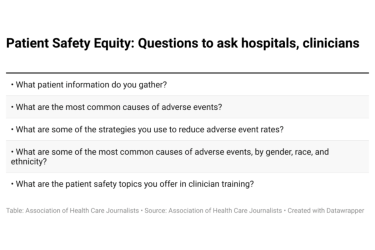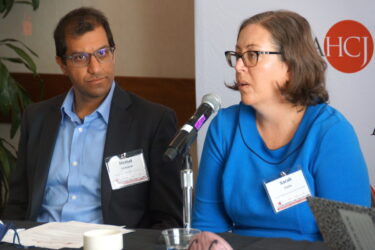The lack of dental care is a big problem for children living below the poverty level and untreated tooth decay hits Hispanic children particularly hard.
Data from one large national survey found a full 26 percent of Hispanic 6- to 9-year olds suffered from untreated tooth decay, compared with 14 percent of non-Hispanic white children of the same age.
February is National Children’s Dental Health Month and oral health advocates from the Maryland Dental Action Coalition just launched a new campaign, Dientes Sanos, Ninos Sanos, (Healthy Teeth, Healthy Children) tailored to reach more of the state’s at-risk kids.
“This started because Hispanic children have more tooth decay than other populations, said Harry Goodman, D.M.D., M.P.H., director of the Office of Oral Health at the Department of Health and Mental Hygiene. He stopped by the Prince George’s County Health Department dental clinic on Feb. 1 to help kick off the effort. It expands on a statewide English-language oral health literacy initiative and includes Spanish language posters for bus and train shelters, brochures, a series of radio spots and a website, DientesSanosNinosSanos.org aimed at raising oral health literacy and helping Spanish-speaking parents find dental care for their children.
The campaign stresses the importance of a dental visit by the child’s first birthday, good home care, including brushing with fluoride toothpaste, keeping sugary foods to a minimum and getting routine care as a child grows.
Virginia Garcia Vivar, a house cleaner and mother of three, was one of the first to receive a new Spanish language oral health brochure. It brought a smile to her face.
“I speak a little bit of English, but some people don’t understand what the doctors are saying,” she said. “To get that information in Spanish is really important to us.”
Garcia Vivar was waiting for her oldest child, Brenda, 17, who was getting some routine care that morning. The mother said she was grateful that she found the county clinic when Brenda was a preschooler and has been bringing her children ever since.
Such safety net clinics play a major role in caring for low-income children and those without private insurance.
“They help us always,” said Garcia Vivar. “We love them.”
Are there special events planned in your community to mark National Children’s Dental Health Month? You might want to contact your local or state dental society or health department to find out. For more background on dental health in the Hispanic community, we’ve gathered a set of resources that should provide good references for reporters.
Related
Report highlights shortcomings in states’ dental sealant efforts









